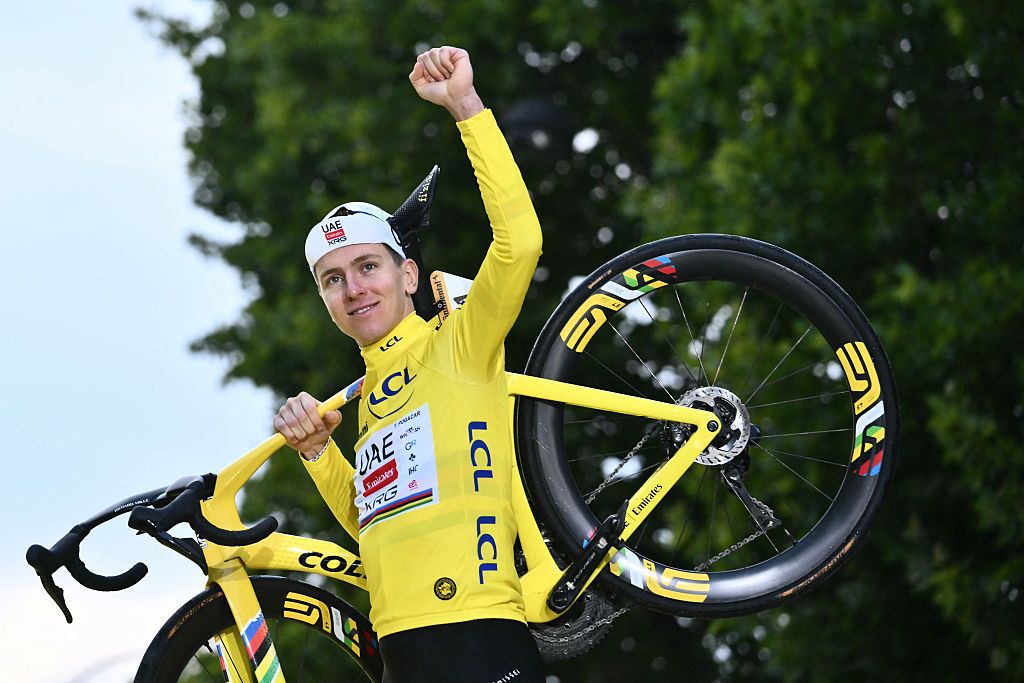
The Tour de France began in 1903, and the first edition ever was won by Frenchman Maurice Garin. In the modern era, one can only imagine the kind of hardships those early Tour riders must have faced.
Stages were well over fifteen hours long and crossed unpaved mountain passes, unsupported. It draws comparisons with the golden age of Arctic exploration. What hardships those early heroes must have endured on their way to Tour glory.
While the women's race, in several different formats, has a far shorter and more inconsistent history, the men's race has been a consistent feature on the calendar. Aside from the years 1915-1918 and 1940-1946, which were stopped by World Wars One and Two, the Tour has been held each summer.
The Tour de France bikes have changed greatly over this period. Where once round tubes of steel, shallow wheels, rim brakes and tubular tyres ruled the peloton's bike design, nowadays carbon fibre is ubiquitous, with aerodynamic shapes throughout, joined by disc brakes, deep-section wheels and, for the most part, tubeless tyres.
But with all the changes, one thing remains the same: a Tour de France victory is worth a great deal to a bike sponsor.
Here, we'll examine the brands that have seen the most success across the history of the Tour de France, which brands have followed the developments through time, and those that have disappeared into the history books.
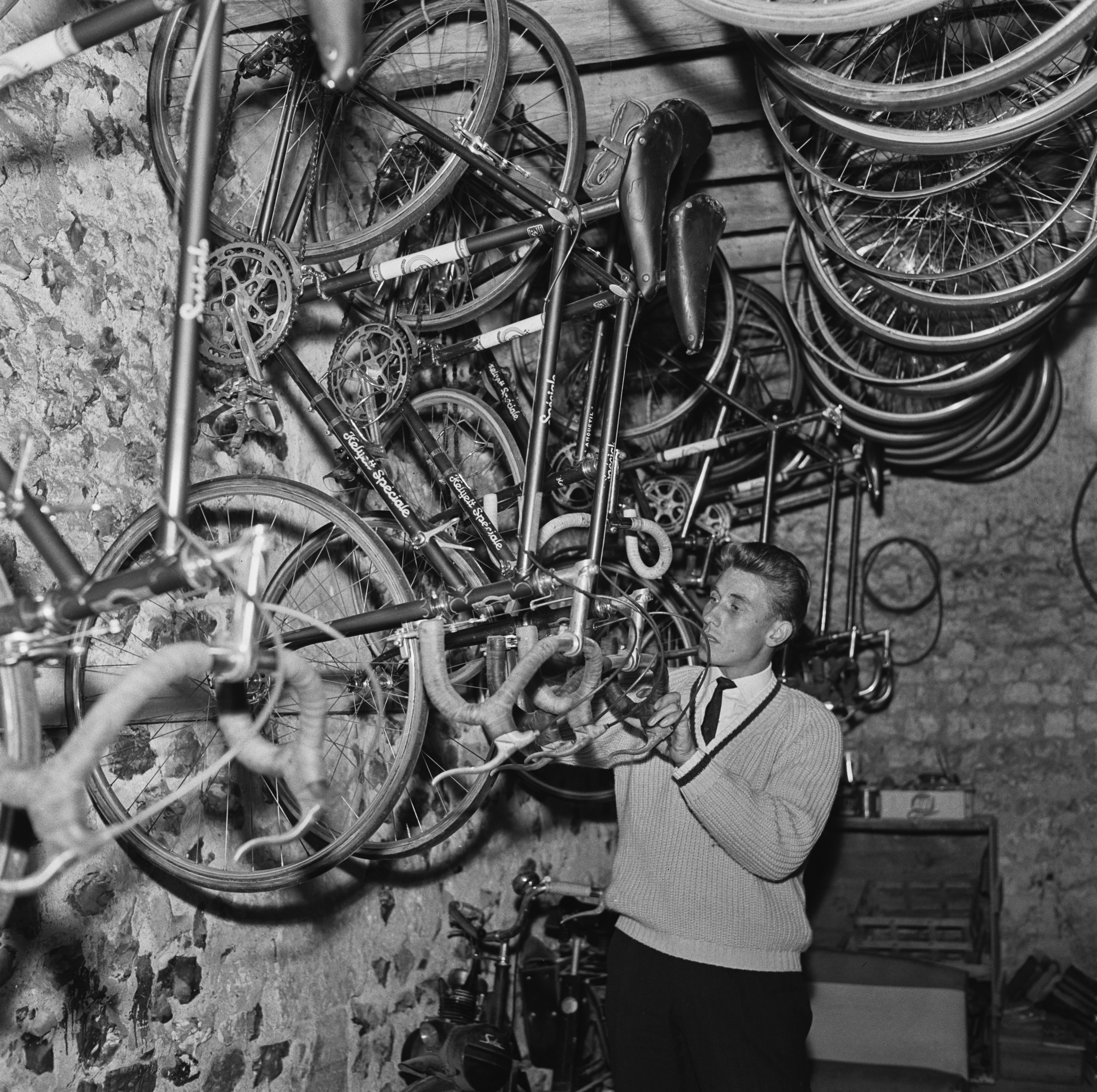
With WorldTour teams using the equipment provided by their sponsors, many of the brands that are racking up stage wins in the modern race are still comparatively young compared to the Tour de France itself.
We’ve combed through the results of many editions of the Tour and tabulated which brands have dominated the race over the last century.
Further complicating things is the historically common practice of frames of old being built by a different brand than the one displayed on its tubes. Riders often had their frames hand-made for them in decades gone by, and the frame was painted up with a sponsor's brand.
The most significant of these instances concerns the French manufacturer Alcyon. Between 1930 and 1939, every bike ridden in the Tour was labelled L'Auto, as decreed by the race organisers.
It is widely assumed that these were built by Alcyon in each year except 1938, which would add 9 victories to the company's tally. But, since there was no competition, these wins could be judged to be by default.
Another example is Eddy Merckx's Tour de France bikes, which were made by Colnago and De Rosa, most famously, but a few other manufacturers were involved as well. The bikes were often branded with Merckx's name, a brand that continues to adorn the down tubes of bikes to this day, and was a feature in the men's WorldTour as recently as 2020.
To simplify matters here, we're sticking with the brand name on the winning frame rather than the manufacturer, something that becomes harder to find out the further back in time you go.
We've also added the winning bikes from the Tour de France Femmes from its official rebirth in 2022.
Some records of Tour bike brands and sponsors of old, both in the longstanding men's race and the variously-titled women's races, are hard to find. It's nearly impossible to fit over a century of history into a relatively short article, so we have stuck to some of the major players and winningest brands.
Get in touch with us if you have information on the manufacturers of old or comment down below; we are fans too and welcome any extra expert knowledge.
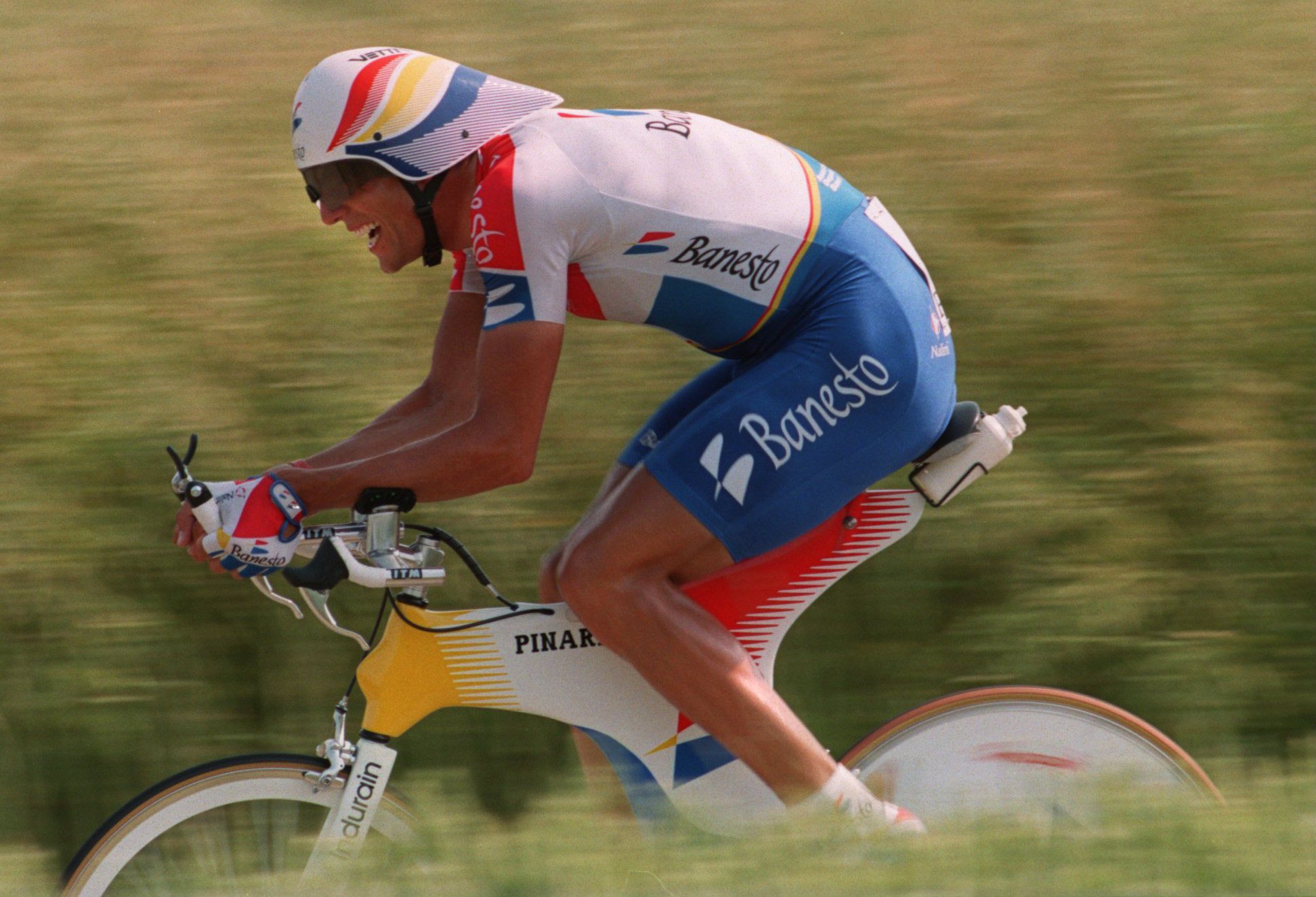
1. Pinarello - 16 wins
Pinarello tops the rankings list with a total of 16 official Tour de France overall victories. We visited the Pinarello factory in 2023, and you can view our special factory tour gallery here that features some Tour-winning bikes.
Pinarello earned its first TDF overall classification in 1988. A red Pinarello was ridden by Pedro Delgado, riding with Team Reynolds. This race was marred with controversy, as Delgado tested positive for Probenecid, which at the time was considered a performance-enhancing drug by the IOC, but was not yet banned by the UCI.
In the early 1990s, Pinarello enjoyed its first block of success, and the brand's bikes were ridden to several TDF General Classification victories by Miguel Induráin with five, and then Bjarne Riis, who was removed from then reinstated to the winner's list after admitting to taking PEDs, with an asterisk to acknowledge the offence. Then Jan Ullrich won his only Tour in 1997 on a Team Telekom Pinarello.
Some of the Pinarello-branded bikes ridden in the Tour in the late '80s and early '90s were actually manufactured by TVT, though this was a pretty common practice of the era. In the interest of names on frames, we count 16 in total for the Italians.
Next came the Team Sky (and later Ineos Grenadiers) era of dominance. Bradley Wiggins kicked things off in 2012, followed by four victories from Chris Froome, and one apiece by Geraint Thomas and Egan Bernal. The Colombian's victory in 2019 marks the Italian brand's last overall title, for the moment.
Pinarello was founded in 1953 by Giovanni Pinarello. What we don't know is whether Pinarello produced a winning bike that was rebranded between 1953 and Delgado's 1988 Tour-winning ride. It's possible the brand could have won more titles unofficially, but we are sticking to branded bikes here.
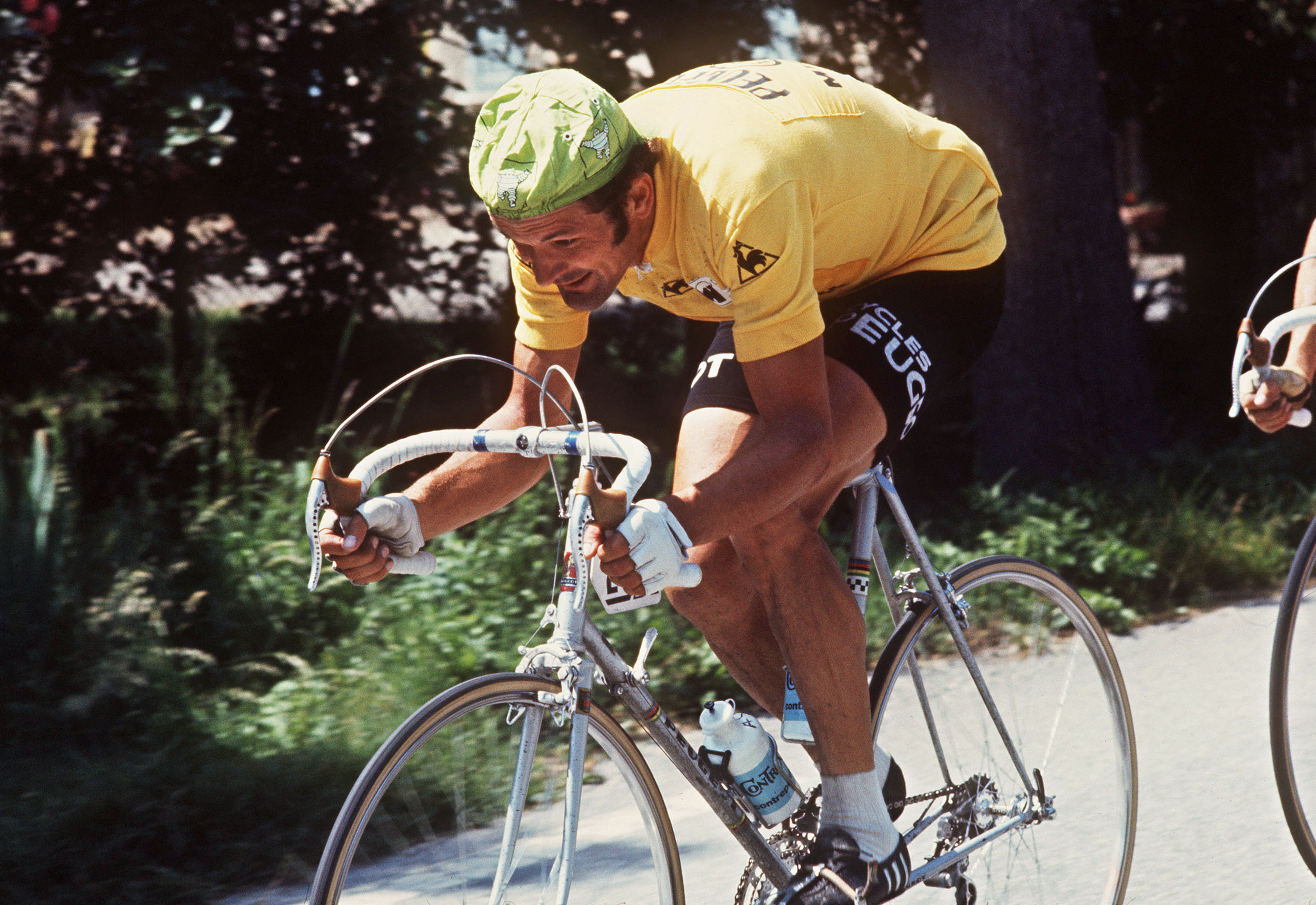
2. Peugeot - 11 wins
Peugeot has been making bicycles since the early 1800s, and while today it is best known for its cars, the French brand still produces a range of road, commuter, and mountain bikes.
Originally from Sochaux, France, the French brand earned its first Tour de France victory in 1905 with French rider Louis Trousselier and most recently in 1987 with Irishman Stephen Roche.
While Peugeot’s official Tour de France count is 10, it was also part of the collective of French automotive manufacturers that banded together after World War I under the moniker La Sportive to provide bikes for the race between 1919 and 1921. La Sportive has won in all three of these editions, which in part can be attributed to Peugeot.
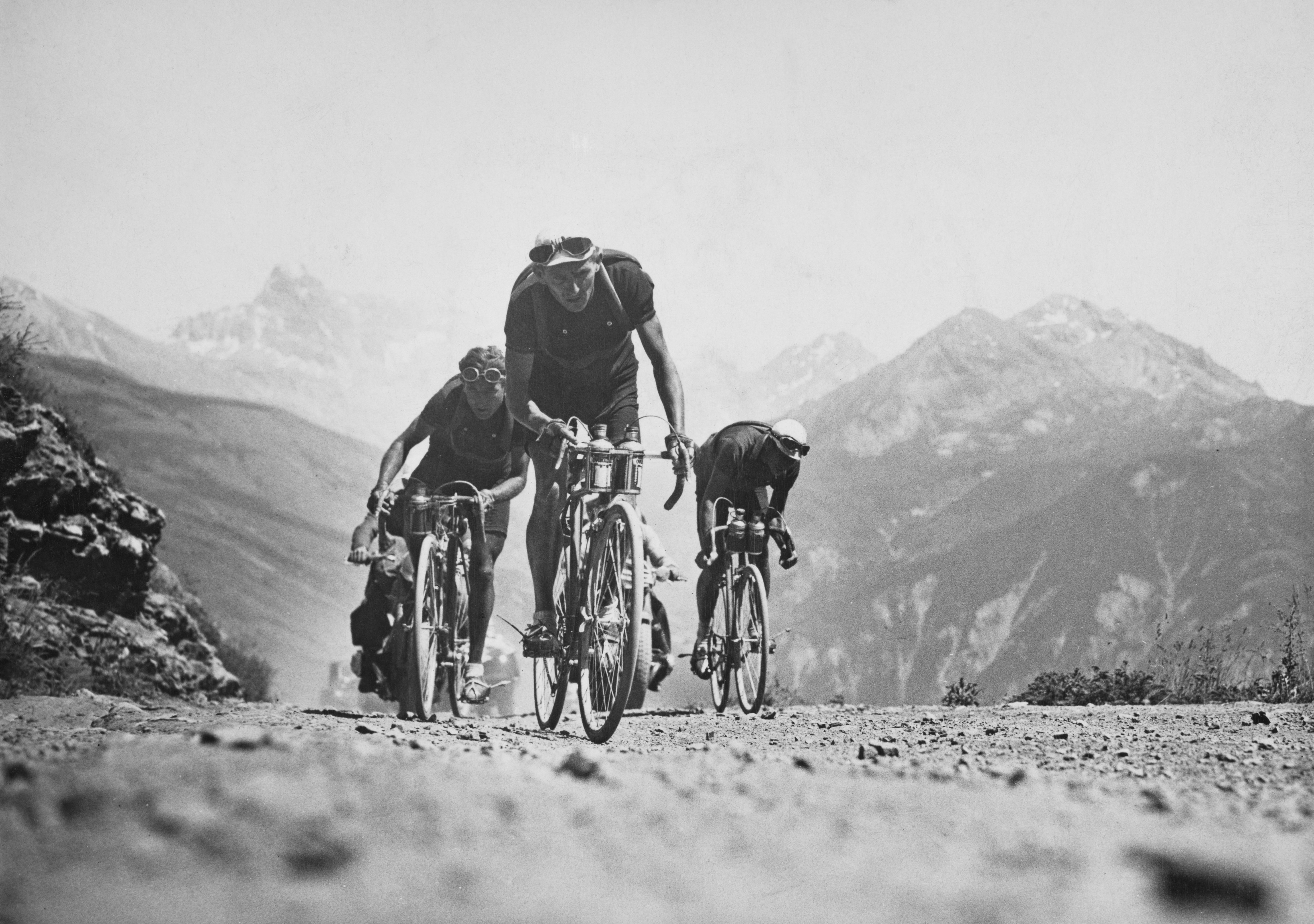
3. L’Auto - 10 wins
In 1903, Henri Desgrange, the editor of the newspaper L’Auto, founded the Tour de France as a publicity stunt for his waning publication; it's safe to say it worked out for him.
As Desgrange was running the race and setting the rules in 1930, he banned trade teams and only allowed national teams to participate, stipulating that each rider had to use a generic bicycle. Desgrange was a bit of a stickler at times and was renowned for making things hard for the race's riders.
For those 10 pre-war years, every rider from the yellow jersey winner to the lanterne rouge competed on a yellow road bike with L’Auto painted on the downtube, racking up 10 wins for the branded bikes at least.
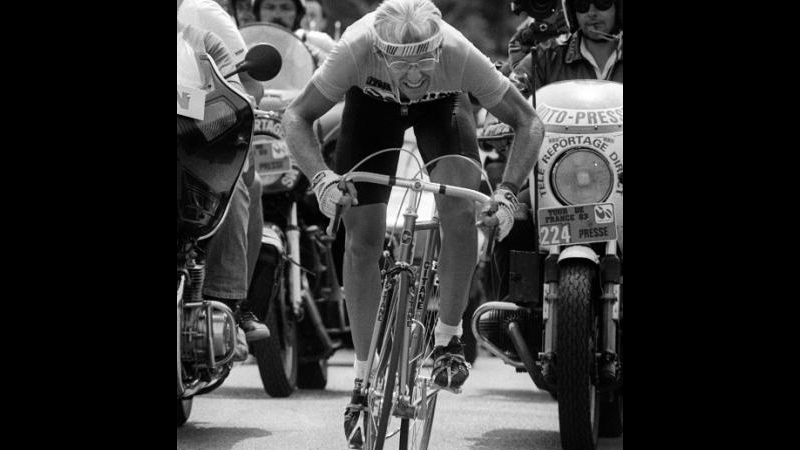
4. Gitane - 9 wins
With nine Tour de France victories, French outfit Gitane made the bikes which Laurent Fignon and Bernard Hinault rode to some of their wins. (Hinault also rode Look machines). The brand was widespread in the professional peloton from the 1960s through to the 1980s and was also well known for producing motorcycles, also supporting moto racing teams during this period.
In 1972, Gitane produced the “Tour de France”, which was a lightweight (for the time) frame, made from Reynolds 531 tubing and served as the brand's race bike.
After a few name changes and transfers of ownership, Gitane ended up as part of the same brand portfolio as Peugeot and B.H., under the umbrella of Cyclegroup.
Gitane purchased the Helyett company in the 1960s, and also claimed its three Tour victories, which were achieved by Jacques Anquetil in 1957, 1961 and 1962. The Helyett frames may well have been built by Gitane too, but since we're sticking to names on frames, Gitane remains on nine victories.
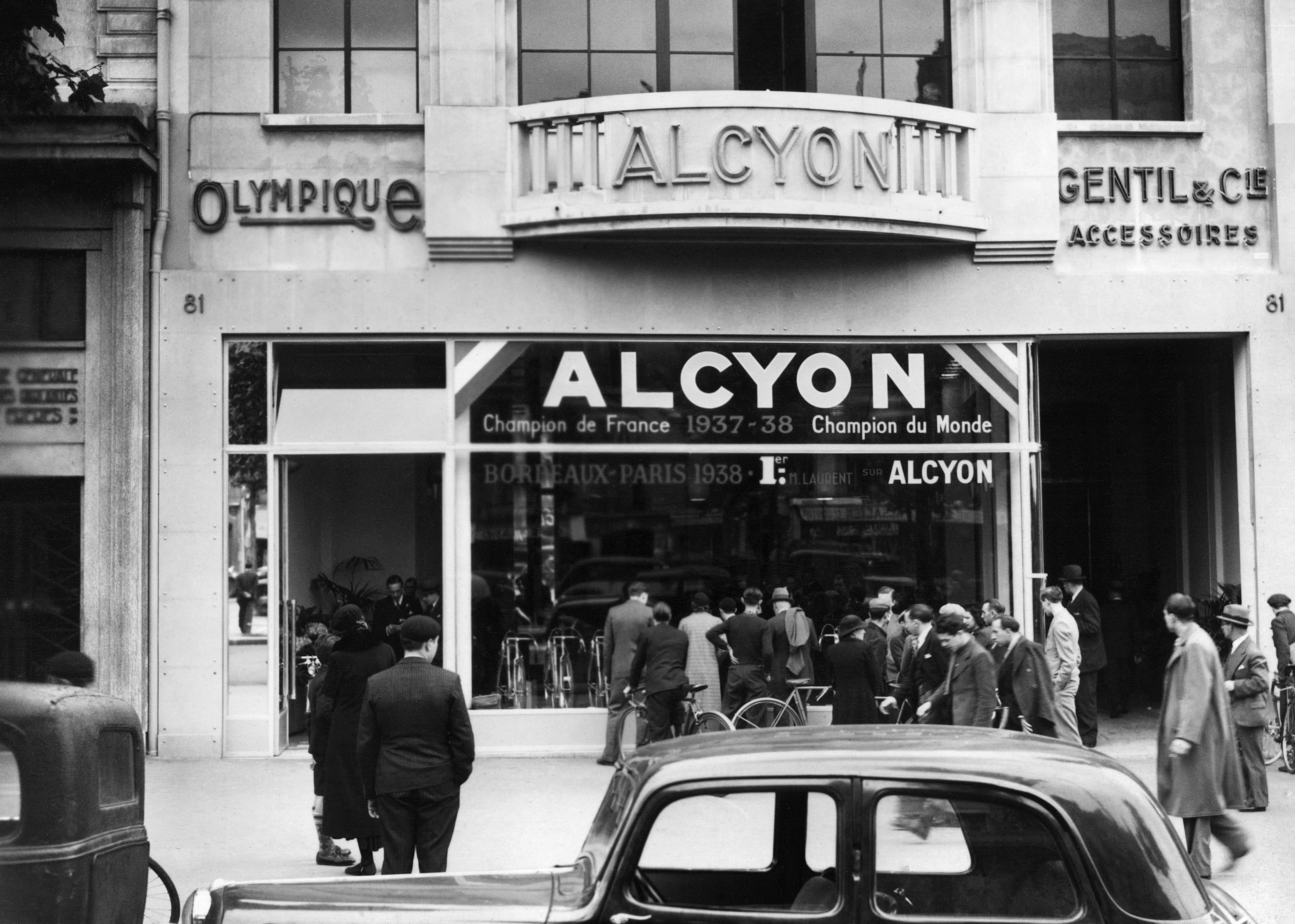
5. Alcyon - 7 wins
With seven wins to its name, Alcyon, like so many of the brands that provided bikes to early Tour teams, made bikes, cars, and motorcycles.
The brand’s first-ever win in the Tour de France came from the Luxembourgian François Faber, who also clinched five stage victories in that edition.
Alcyon sponsored a team through the 1920s and was becoming a force in the peloton, winning the 1927, 1928 and 1929 editions, but the visibility of the Alcyon name ended there due to Desgrange’s ban on trade teams in 1930.
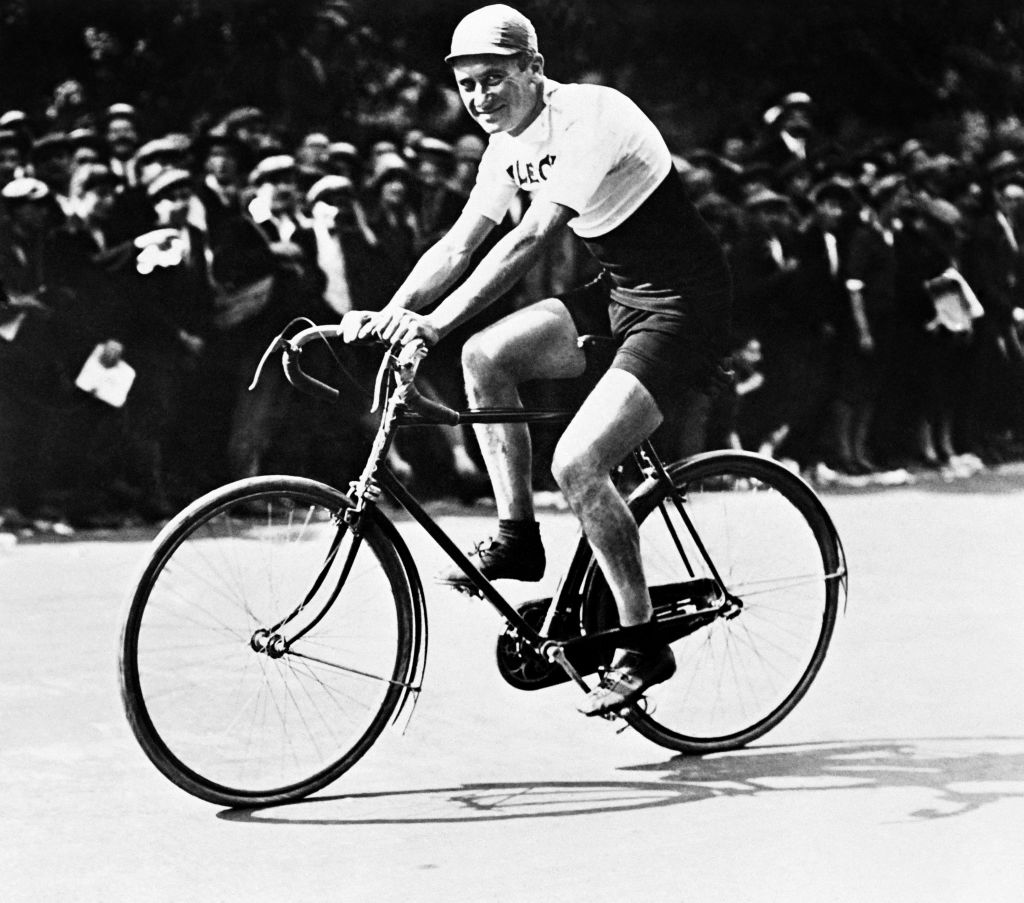
6. Automoto - 4 wins
French outfit Automoto was founded in 1902 and like so many others of the era, was in the business of two-wheeled vehicles, both human-powered and motorised.
The brand won four consecutive Tours de France under Henri Pélissier in 1923, Ottavio Bottecchia in 1924 and 1925, and Lucien Buysse in 1926. A few years later, in 1930, the brand was purchased by Peugeot but still produced bikes and motorcycles under the Automoto brand name until 1962, when it was discontinued.
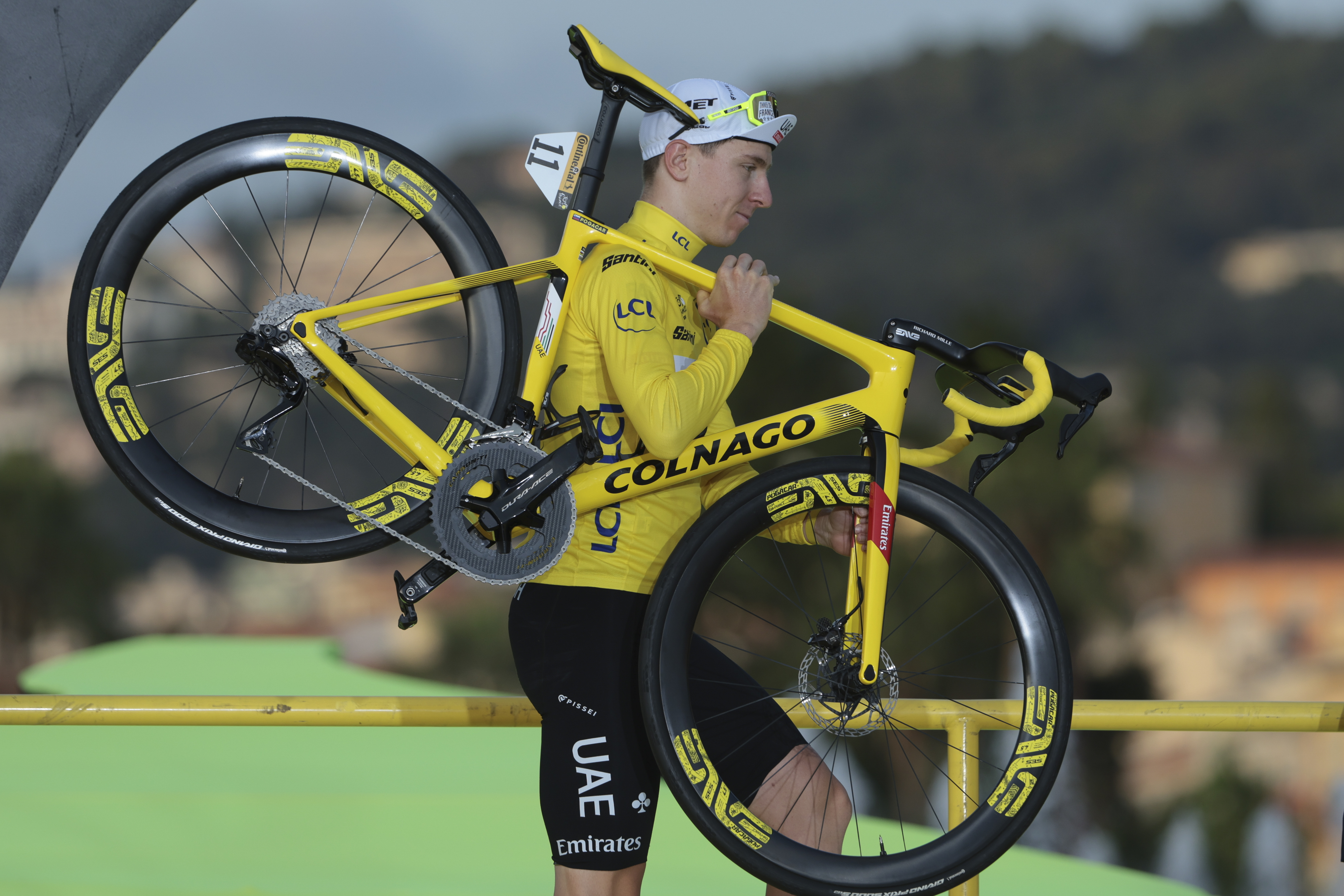
7. Colnago - 4 wins
Prior to Tadej Pogačar's reign of dominance, Ernesto Colnago's brand, which was founded in 1954, had never officially won a Tour de France. Of course, it's not out of the question that the brand wasn't manufacturing bikes for winning racers behind closed doors.
With his 2025 victory added to the mix, Tadej Pogačar has now won four Tours de France, in 2020, 2021, 2024 and 2025, taking 21 individual stages along the way. He joins Chris Froome in that elusive club, with only Anquetil, Merckx, Hinault and Indurain ahead on five a piece.
At the 2025 race, Tadej Pogačar's bike of choice was almost always the Colnago Y1Rs aero bike, even on the steepest mountain days. He also had the lighter weight V5Rs at his disposal, alongside the TT1 time trial machine.
We should also mention Chloe Hosking's win at the 2016 La Course by the Tour de France, who won the one-day race aboard the Colnago V1-R while racing for Wiggle-High5.
8. Cervélo - 3 wins
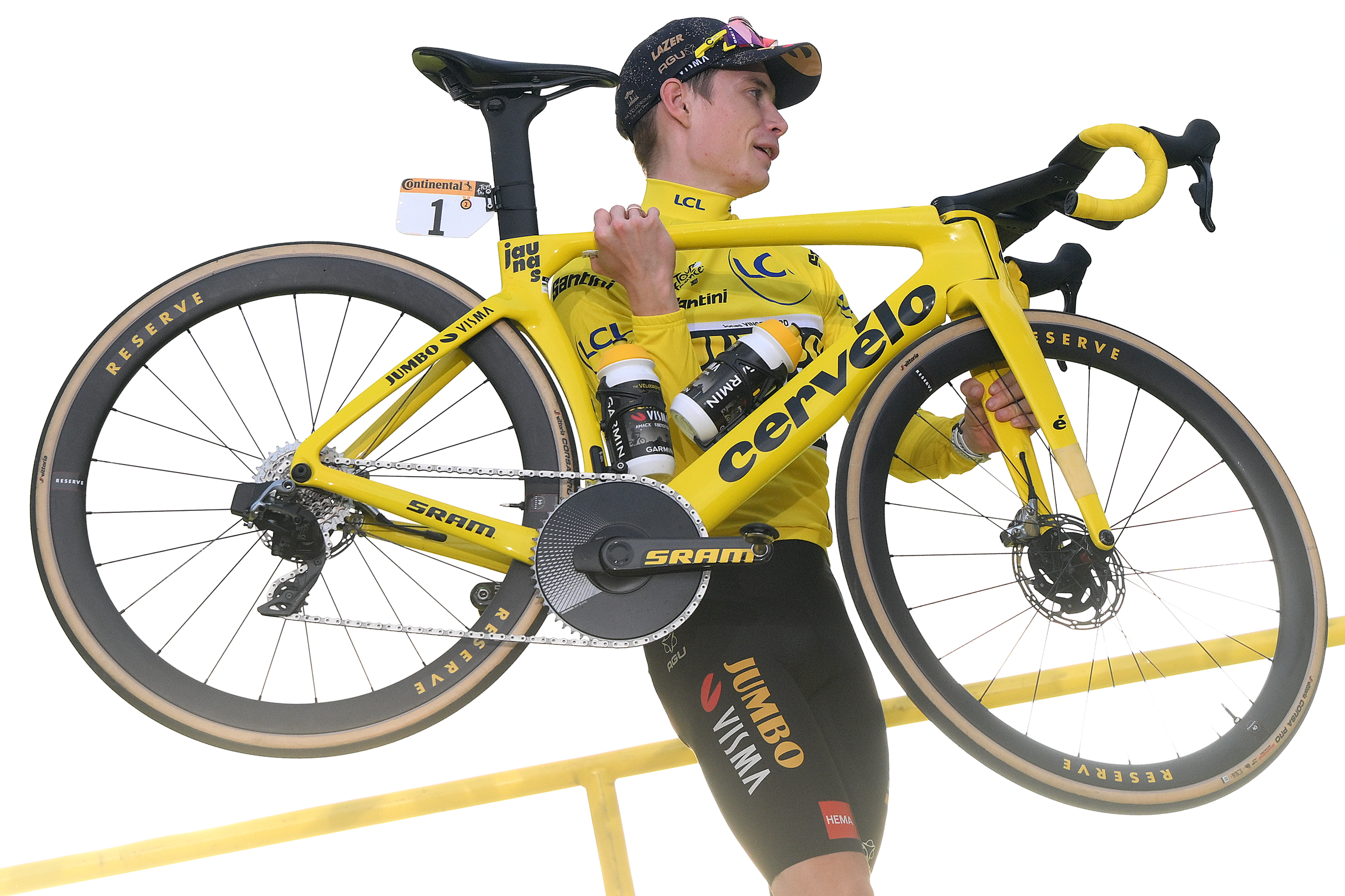
Cervélo bikes have been ridden to a total of three Tour titles so far. The first of which was claimed by Spanish rider Carlos Sastre back in 2008 when riding for CSC. Fast forward over a decade and Danish star Jonas Vingegaard added to the tally with back to back victories in the race in 2022 and 2023.
Sastre rode an S3 model back in 2008. Vingegaard, meanwhile, rode an S5 and R5 lightweight model whilst on the way to his victories, and was one of the early adopters of a 1X chainring chainset configuration on standard road stages.
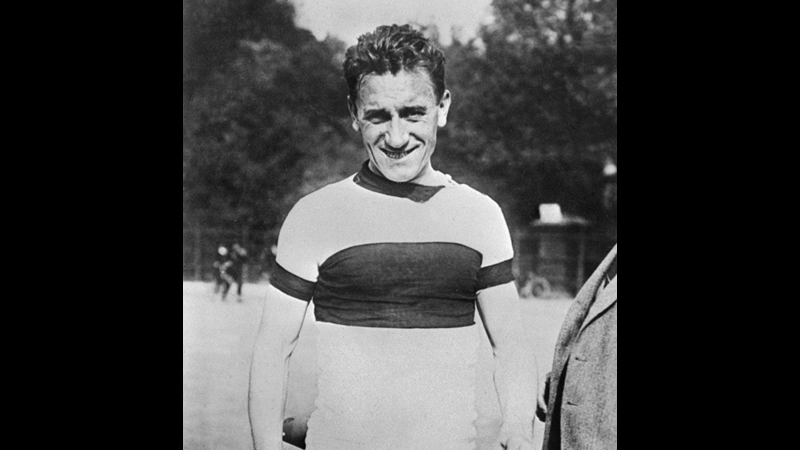
9. La Sportive - 3 wins
While La Sportive may only have three Tour wins under its belt, and was only in existence for a handful of years, it’s one of our favourite stories in cycling history.
World War One left Europe in bad shape, and many of the factories that produced bicycles had been reduced to rubble. The continent was in a depression, and spending money on sporting teams was hardly a priority at the time.
So to make sure the race would not be yet another casualty of the war, Alcyon, Armor, Automoto, Clément, La Française, Gladiator, Griffon, Hurtu, Labor, Liberator, Peugeot and Thomann banded together to provide equipment to half the peloton, and sponsored the race from 1919-1921.
Given that half the riders were on La Sportive bikes during these years, it’s no surprise it came away with the General Classification each time, with Firmin Lambot winning in 1919, Philippe Thys winning in 1920, and Léon Scieur in 1921.
The group disbanded in 1922 when each respective company restarted its own teams.
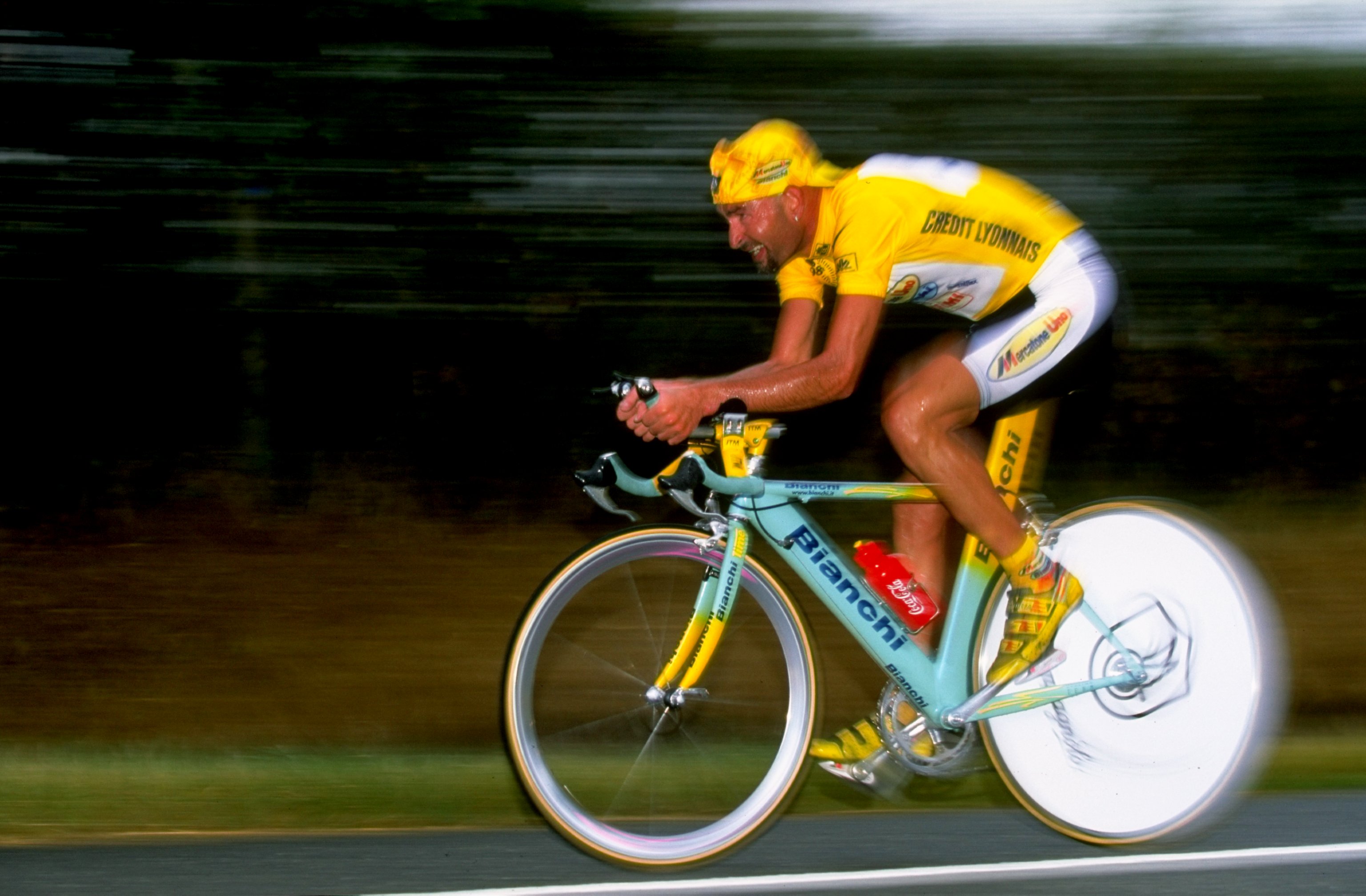
10. Bianchi - 3 wins
The last time a Bianchi was ridden down the Champs-Élysées at the top of the general classification was in 1998 when Marco Pantani had the yellow jersey on his shoulders. It was also notably the last time an aluminium bike won at the Tour de France.
This edition was drama-filled, not only because of the racing, as the 85th edition was also the year of the Festina affair, which marred the race with police raids, rider strikes, and teams pulling out of the race.
Bianchi’s other Tour de France victories were with another icon of the sport in the form of Fausto Coppi in 1949 and 1952.
The brand came within a hair's breadth of doing it again in 2020, but Primož Roglič's untimely implosion on the stage 2020 time trial up La Planche des Belles Filles handed the race to Tadej Pogačar.
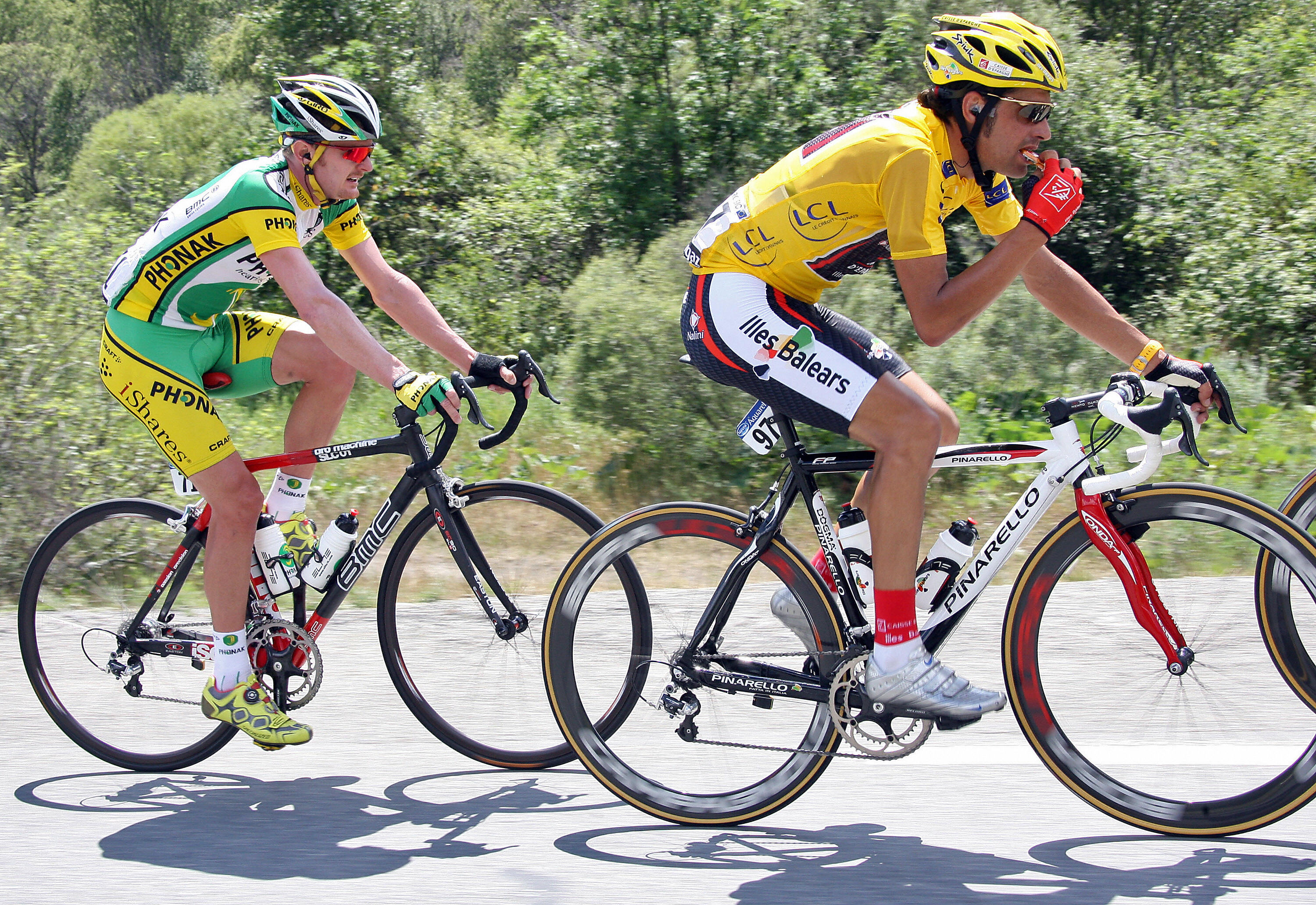
Specialized - 3 wins
Specialized boasts three victories, all of which coming in the 21st century courtesy of Andy Schleck in 2010, Vincenzo Nibali in 2014, and Demi Vollering in 2023. Schleck's Tour win came courtesy of the Saxo Bank team, which later became Tinkoff before it disbanded in 2016.
Nibali was the only rider to break the Team Sky dominance in the mid 2010s, captialising on Chris Froome's crash on the cobbled stage in a race the Briton was otherwise the hot favourite to dominate.
Demi Vollering won the second edition of the Tour de France Femmes in 2023. She also captured a win at the one-day La Course by the Tour de France in 2021 aboard Specialized too, but as one-day events only, we've chosen to exclude those from the tally.
If we were to count those, we must shout out Liv bikes, who won the 2014 (Marianne Vos), 2015 (Anna van der Breggen) and 2019 (Vos) editions.
And we should also mention Vitus Bikes, who supported Marianne Martin (1984) and Jeannie Longo (1987-1989) for their respective Tour de France Fémemin wins.
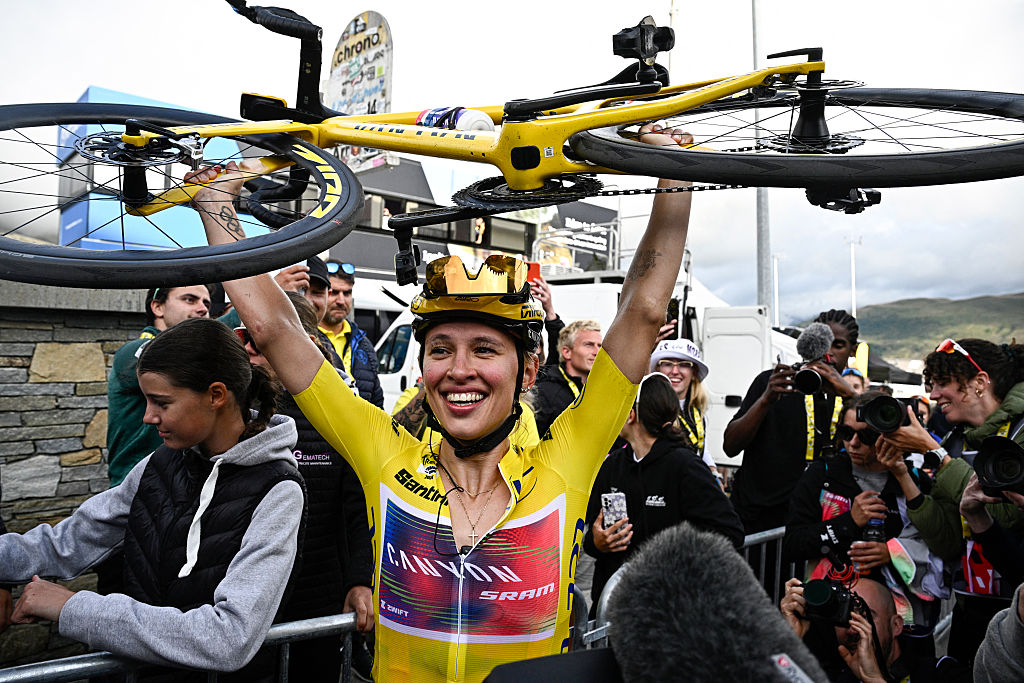
11. Trek, Canyon, Frejus, Stella, and Geminiani - 2 wins
Here are five other brands, each with two wins to their name: Frejus, Stella, Geminiani, Trek (not counting Armstrong's wins) and Canyon.
Trek has a tumultuous history with the Tour de France; its bikes have 'won' a total of nine Tours de France, however, with all of Lance Armstrong’s 'victories' being officially stricken from the record, the big red barn in Wisconsin can only officially claim Alberto Contador’s 2007 and 2009 wins, although Lizzie Deignan did pilot one to a one-day La Course victory in 2020 too.
Canyon, meanwhile, has claimed two wins at the Tour de France Femmes thus far, with victories by Annemiek van Vleuten in 2022 and Kasia Niewiadoma in 2024.
Given that Frejus, Stella, and Geminiani no longer operate in the sport, only Canyon and Trek can hope to increase their tally in the years to come.
Elsewhere, BMC has also crossed the line 1st in Paris on two occasions, but while Cadel Evans' 2011 title is irrefutable, the 2006 winner Floyd Landis was found to have doped soon after, was removed from the results, and Óscar Pereiro was confirmed as the race winner, thus adding to Pinarello's victory total.







